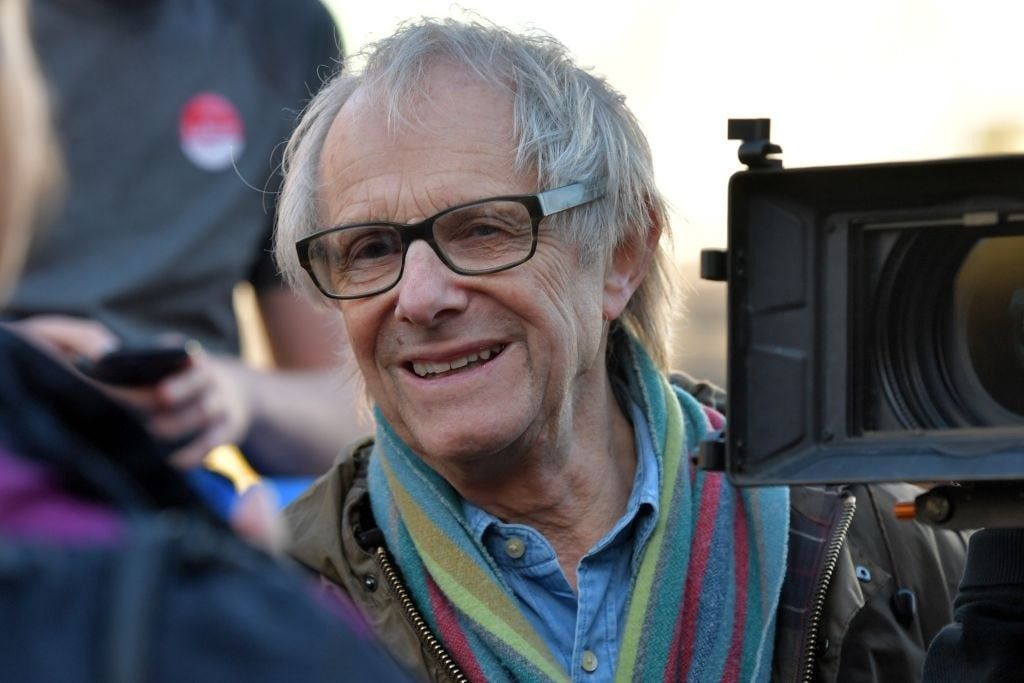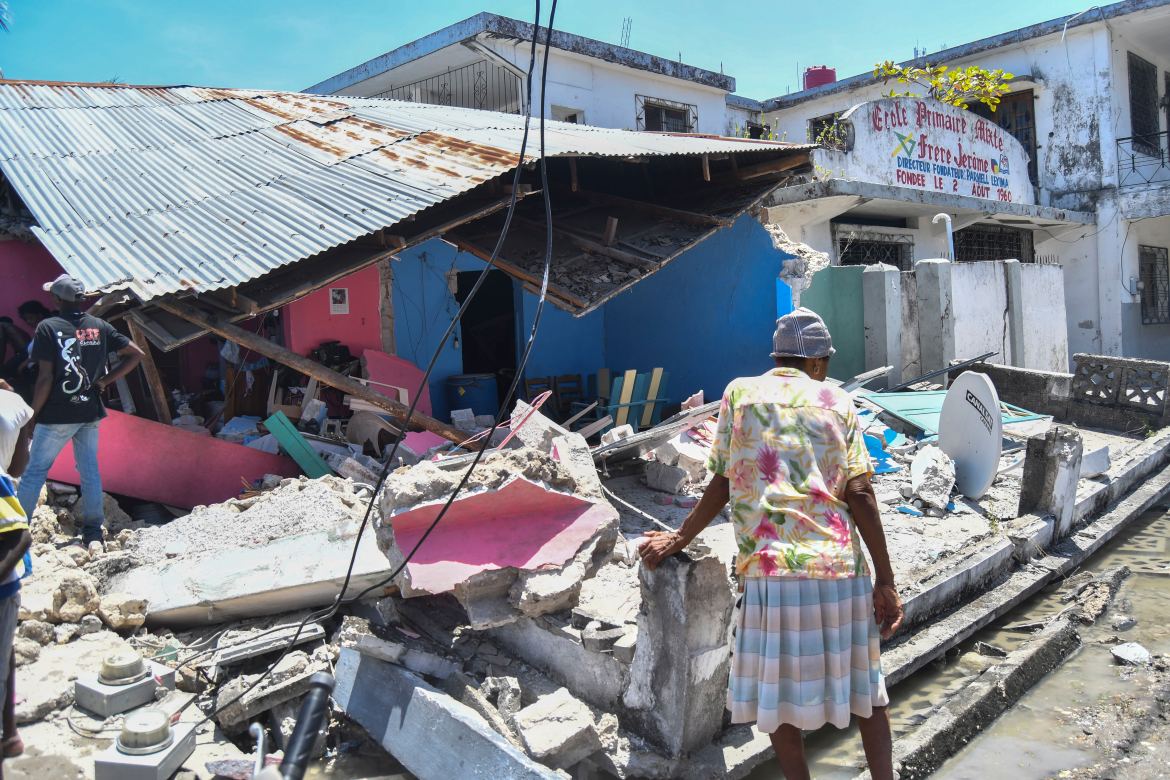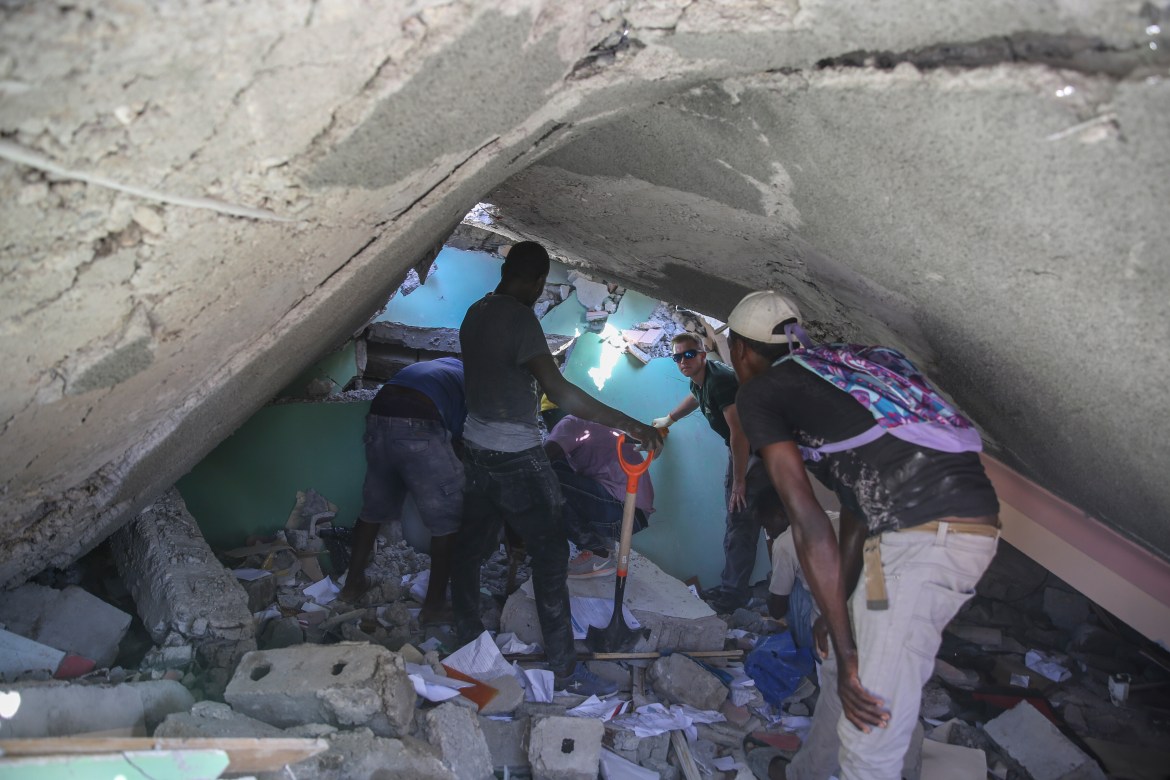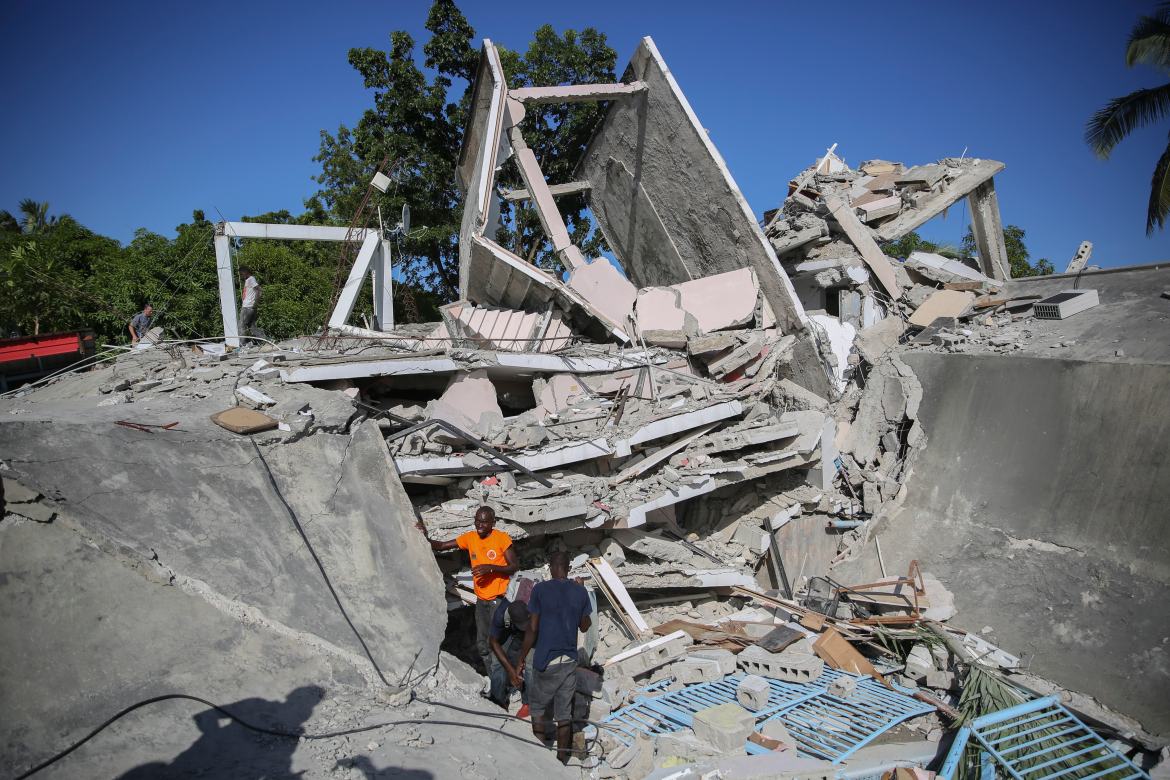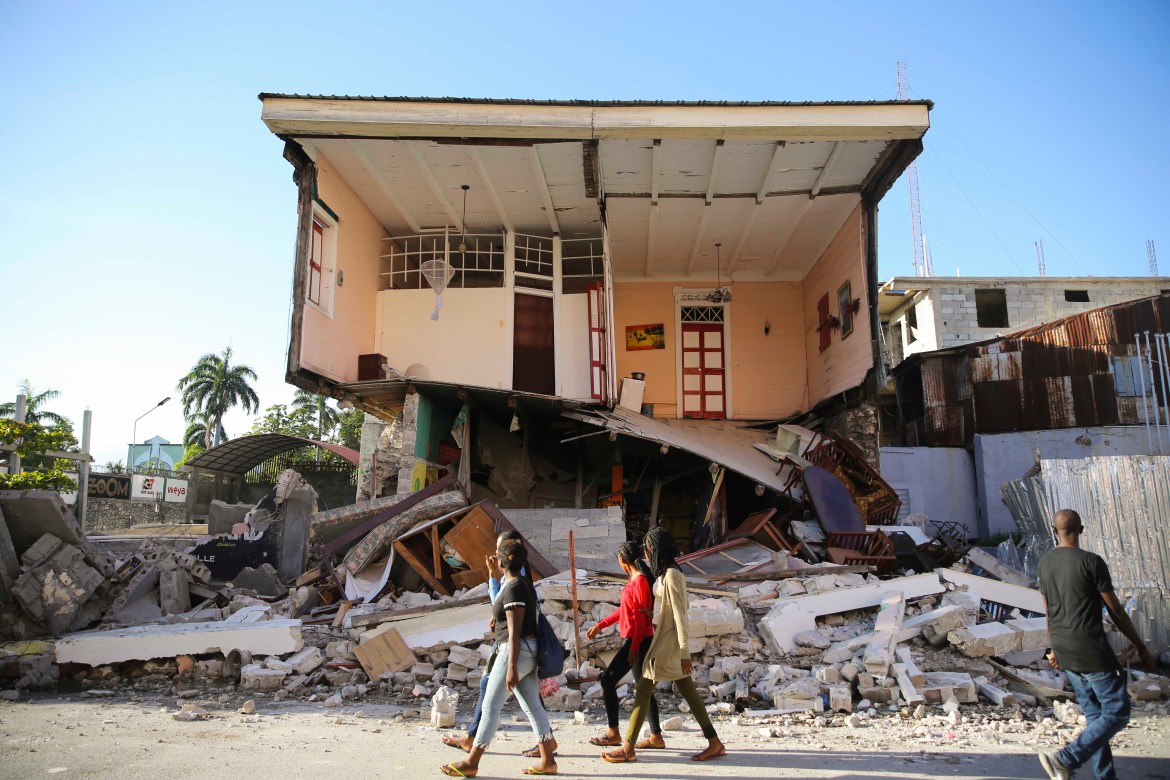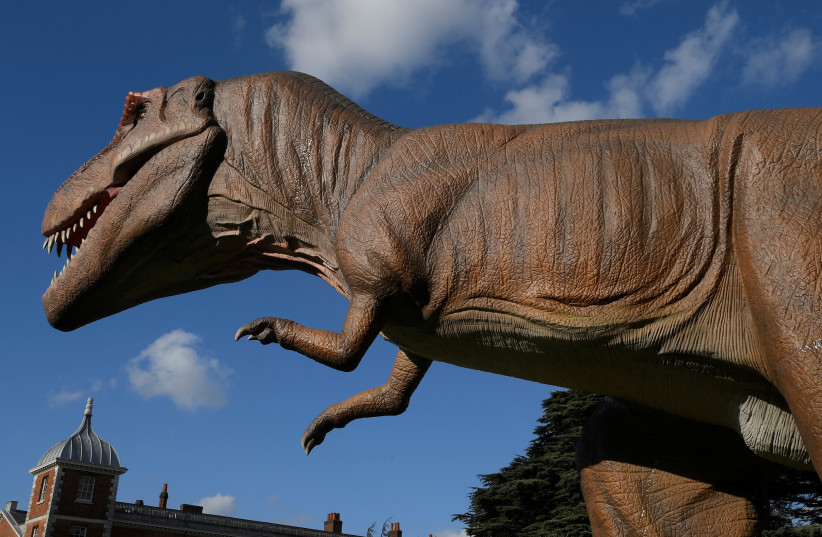Only remaining print paper raided as part of ‘customs fraud and money laundering’ investigation
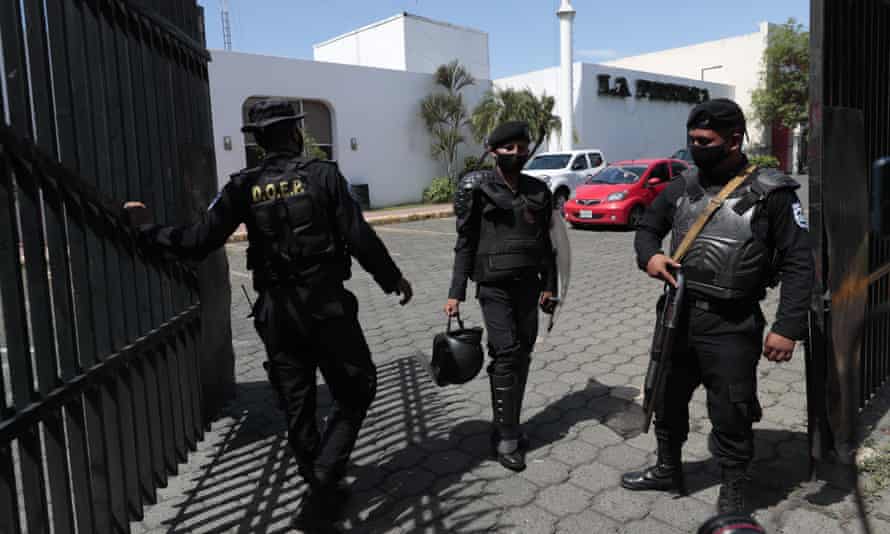
Associated Press in Managua
Sat 14 Aug 2021
Nicaraguan police have raided the offices of the main opposition newspaper La Prensa.
The national police said the raid on Friday was part of an investigation into “customs fraud and money laundering”, and the newspaper’s offices remained under police custody.
The raid came a day after La Prensa suspended its print edition because the government’s customs office had withheld newsprint paper.
La Prensa, founded in 1926, has been critical of the president, Daniel Ortega, who has recently arrested dozens of opposition figures. The regime often uses money laundering, tax and other accusations to raid non-governmental and civic groups it disagrees with.
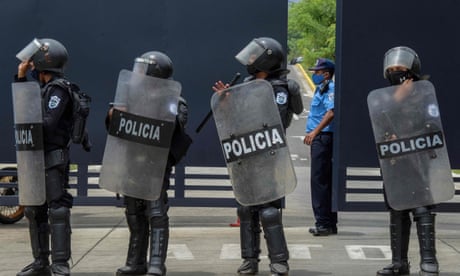
‘We are in this nightmare’: Nicaragua continues its brazen crackdown
The paper’s editor, Fabián Medina, who was in the building at the time, said via Twitter that the police “were looking for paper” used to print the daily. He said police later allowed reporters to return to their offices, but remained in the building.
La Prensa had said it would continue an online edition, but it was unclear how long it could continue to do so. La Prensa has been the country’s only newspaper with a print edition since another opposition paper, El Nuevo Diario, closed in 2019.
On Thursday, the newspaper said in an editorial that “once again the Ortega-Murillo dictatorship has withheld our paper”, referring to Ortega’s wife and vice-president, Rosario Murillo. “Until they release the raw material, we cannot continue with the print edition,” the newspaper said. The move also affects the sister paper Hoy.
This is the third time the government has withheld the newspaper’s paper or ink. The paper ceased printing for about 500 days in 2018 and 2019 amid widespread protests against the regime.
The non-governmental Nicaraguan Center for Human Rights protested against the raid and demanded respect for the employees.
Nicaragua is scheduled to hold national elections on 7 November as Ortega seeks a fourth consecutive term. He placed an opposition vice-presidential candidate under house arrest last week, then released her pending the outcome of an investigation.
Over the past two months, Ortega’s government has arrested nearly three dozen opposition figures, including seven potential challengers for the presidency.
The opposition alliance, the National Coalition, said in a statement on Monday that it did not recognise the current electoral process as a way out of Nicaragua’s political crisis and urged Nicaraguans to not recognise it either.
Later that day, authorities announced the arrest of the opposition leader Mauricio Díaz Dávila, a candidate for congress and a former ambassador to Costa Rica. He had been called to the attorney general’s office as part of an investigation for alleged acts against the state.
His party, Citizens for Liberty, said he was violently arrested. His ability to run for office had been cancelled by the electoral court three days earlier. The party’s president, Kitty Monterrey, whose Nicaraguan citizenship was withdrawn last week, called for his immediate release.
By AFP News
08/14/21 AT 8:14 PM
A top editor of Nicaraguan daily La Prensa was jailed Saturday after police raided the newspaper, making him the latest of dozens of critics of President Daniel Ortega to face arrest.
Juan Lorenzo Holmann was taken to a Managua jail, allegedly to sign documents, his cousin and fellow journalist Carlos Fernando Chamorro said on Twitter.
Hours later, police confirmed Holmann's arrest, saying in a statement that he was being investigated for customs fraud and money laundering.
They said the case was being turned over to authorities "for prosecution and to determine criminal responsibilities."
With presidential elections now three months away, Holmann's arrest brought to 33 the number of Ortega opponents in detention.

They include La Prensa's vice president Cristiana Chamorro, whose family owns the paper. She is one of seven presidential hopefuls now being held.
Ortega, a 75-year-old former guerilla, first took office in 2007 as part of the left-wing Sandinista National Liberation Front. He is now seeking a fourth term.
His government faces sanctions from the United States and the European Union, which accuse him of humans rights violations and the repression of opposition figures.
Ortega, in turn, has accused the opposition of trying to overthrow him with US support.
Holmann's arrest came a day after he announced the suspension of the paper's print edition, blaming customs authorities for refusing to release imported newsprint, a charge the government denies.
La Prensa is continuing to provide a digital edition. It is Nicaragua's only nationally circulated newspaper.
Copyright AFP. All rights reserved.
Aug 12, 2021
MANAGUA, Nicaragua (AP) — Nicaragua’s storied La Prensa newspaper said Thursday it will suspend its print edition after the government once again withheld newsprint paper at customs.
La Prensa has long been criticial of President Daniel Ortega, who also recently arrested dozens of opposition figures. La Prensa said it will continue an online edition.
“Once again the Ortega-Murillo dictatorship has withheld our paper. Until they release the raw material, we cannot continue with the print edition,” the newspaper said in an editorial, referring to Ortega's wife and vice president, Rosario Murillo. The move also affects the sister paper Hoy.
The move marks the third time the government has withheld the newspaper’s paper or ink. The paper had ceased printing for about 500 days in 2018 and 2019 amid widespread protests against the regime.
La Prensa was founded in 1926; along with Hoy it has been the country’s only newspaper with a print editions since another opposition paper, El Nuevo Diario, closed in 2019.
Nicaragua is scheduled to hold national elections Nov. 7. and Ortega is seeking a fourth consecutive term. He placed an opposition vice presidential candidate under house arrest last week, then released her pending the outcome of an investigation.
Over the past two months, Ortega’s government has arrested nearly three dozen opposition figures, including seven potential challengers for the presidency.
On Monday in Managua, the opposition alliance National Coalition, said in a statement that it did not recognize the current the electoral process as a way out of Nicaragua’s political crisis and urged Nicaraguans to not recognize it either.
Later Monday, authorities announced the arrest of opposition leader Mauricio Díaz Dávila, a candidate for congress and a former ambassador to Costa Rica. He had been called to the Attorney General’s Office on Monday as part of an investigation for alleged acts against the state.
His political party, Citizens for Liberty, said he was arrested with violence. His ability to run for office had been cancelled by the electoral court three days earlier. Party President Kitty Monterrey, whose Nicaraguan citizenship was withdrawn last week, called for his immediate release.
Murillo also announced Monday that the government had recalled its ambassadors from Argentina, Colombia, Mexico and Costa Rica “in reciprocity” for steps taken by those governments. She declared recent criticism from those governments as “interfering and interventionist.”
Argentina and Mexico had offered to try to mediate negotiations between the government and opposition, but that offer was rejected by Ortega. Costa Rica and Colombia had strongly condemned Ortega’s government for recent actions against the opposition.
Copyright 2021 The Associated Press.
Ortega accuses and condemns La Prensa and justifies coup against press freedom

Daniel Ortega and Rosario Murillo during the anniversary ceremony of the Army's Naval
Force. Photo: Taken from El 19 Digital
He accuses the newspaper of "laundering money" without evidence, attacks the "priests of the devil", and says that "when the state is slandered, it is a crime"
President Daniel Ortega accused the newspaper La Prensa on Friday night, August 13, of "lending himself to laundering money and hiding the evidence," in the first statements he offered hours after the raid on the premises of Nicaragua's oldest newspaper, investigated for alleged money laundering and customs fraud.
Ortega put himself at the head of the media campaign of the pro-government television stations that justifies the assault against the newspaper founded in 1926 that stopped circulating last Thursday in its printed version after the blocking of the paper executed by the General Directorate of Customs.
"The Prosecutor General's Office and the Police arrived there and found quantities of paper. When you lie in this way, when you slander the state, that is a crime," the president said, supporting the campaign of the propaganda media, which questioned the newspaper's complaint by showing paper in the warehouses, which actually corresponds to another type used in the commercial printing press, usually for the publication of books and posters.
Ortega wondered how much of the paper that the newspaper has introduced tax-free in a year was dedicated to the newspaper and how much to do other types of business, as if it were a prosecutor.
"They have other activities. It is pure business and it is a crime," he said, anticipating a judicial conviction, during his speech at the anniversary ceremony of the Navy, in which he was accompanied by Vice President Rosario Murillo, the Army Command, and the Police Headquarters.
The raid on La Prensa
It was a long day for la Prensa newspaper, which this morning was still occupied by the police. The administrative staff was detained until Saturday morning and its manager Juan Lorenzo Holmann Chamorro was transferred at four in the morning to the Directorate of Judicial Assistance, supposedly to sign some documents, but was detained in the prisons of El Chipote.
The assault on the newspaper's offices began at 12:20 p.m. on Friday, before the police issued a statement announcing an investigation into customs fraud and money laundering.
Since the third of June, Ortega has kept under house arrest the vice president of the newspaper, the presidential candidate Cristiana Chamorro,in the investigation process for alleged money laundering opened against the Violeta Barrios de Chamorro Foundation, which supports freedom of expression and which the Executive falsely places conspiring against the stability of the country. Following the arrest of Chamorro and two former foundation workers, 29 other political and civic leaders have been arrested, including seven presidential hopefuls.
Attack on businessmen and "devil priests"
Businessmen and priests of the Catholic Church were also the target of the president's attack. The religious, who backed the population during the April 2018 crackdown, Ortega called them "priests of the devil." "Son children of the devil, they are not children of God, they are children of the devil those priests," he said.
In his speech, he said that the opponents currently being investigated by the state are the ones who were in charge of financing, organizing, seeking support from the Yankees and directing the "crimes in 2018," which his government described as a "coup d'etat."
However, reports from international organizations such as the Inter-American Commission on Human Rights (IACHR), attached to the Organization of American States, indicate that what actually happened in Nicaragua was an excessive use of force at the hands of the State, executed by the police and parapolice groups, which left at least 328 dead, more than two thousand injured and caused more than 100,000 people to go into exile. One of the regime's bloodiest attacks occurred with "Operation Clean-up," when authorities set out to violently clear the roads before July 19, 2018, where the population erected barricades to protect themselves from attack by police groups.
Ortega called "murderers" the opponents who refused, according to him, to lift the "blockades" during the national dialogue that failed, among other reasons, because of the government's failure to stop the repression. "Thisis recorded because it was broadcast live on television, because even they asked for it, when it was asked who was against the blockades being lifted, then they raised their hands, those criminals, those murderers, that's why they are terrorists," he charged.
In a hate speech, Ortega said: "Becausethey have surnames of families of abolengo, because they are from notable families and rich families, who because they have been working with bankers, bankers of rich families ... they must respond!" he added.
Against the big businessmen, with whom he maintained a solid alliance between 2009 and 2018, the president also denounced and added that it was those who benefited from his model who "buried the dagger to the fatherland."
"What wild capitalism wants is every day more money, more money at the expense of whatever it is and they cared little at that time about the economic growth that benefited them, because they wanted to swallow everything and they served as an instrument to the Yankee and made alliance with the priests, sons of the devil, and began that work of terror," he added by again mentioning the Catholic Church.
In recent days, the Archdiocese of Managua denounced that there are no conditions for the country to hold votes in reference to those scheduled for the next seven of November, in which Ortega will seek a fourth term since he was installed in the executive in 2007.
The Sandinista caudillo described as "enemies of Nicaraguans who want to work in peace" those who lend themselves "to the interests of imperialism." For him, they "simply stopped being Nicaraguans" and in a sign of their radicalization he said that "there is no longer room for amnesties."
"Whoever commits a crime has to be investigated and then tried and punished in accordance with thelaw. We are already at a stage where we cannot continue to approve amnesty, because it would also be to become terrorists, criminals, there is no space, everything had its time, it had its stage," the president said.
What the international community has demanded is free elections and that Nicaragua respect its own human rights commitments, to which Ortega has responded by accusing the United States,Canada and the European Union of aggression.
Since 2018, the governments of these countries have sanctioned officials in the presidential circle, including Murillo, for violations of the rights of Nicaraguan citizens. Just on Friday, before the police operation in La Prensa, Suiza sanctioned the vice president and did the same with her son Juan Carlos Ortega Murillo and six other officials, for the aforementioned reasons.
At the end of the president's speech, Murillo denounced what he called "factories of lies and crimes," which he believes are in tune with "servility to the Yankee," and again attacked religious who "tried to deceive us all."
"What Commander Daniel called at the time the ultimatum — during the failed dialogue — that the institutions had to be handed over to the criminals. That's what they asked us and of course they lost their bet on crime," he reiterated.
The presidential couple's statements occurred at the military ceremony where Ortega mentioned the possibility of strengthening the Naval and Air Force, also recently an anniversary, "for the defense of sovereignty."
